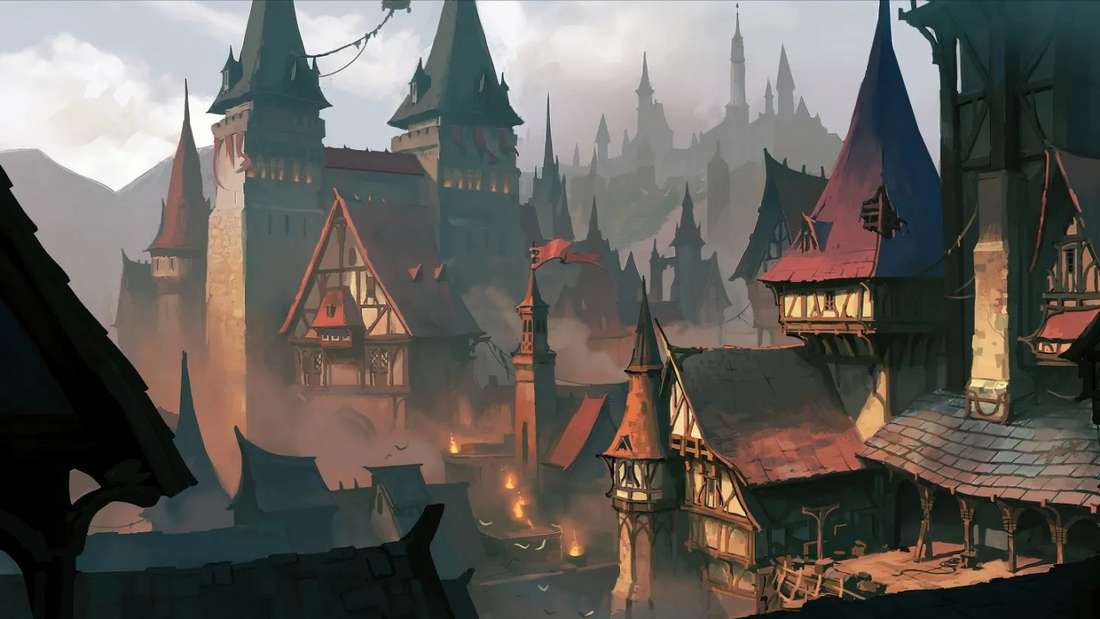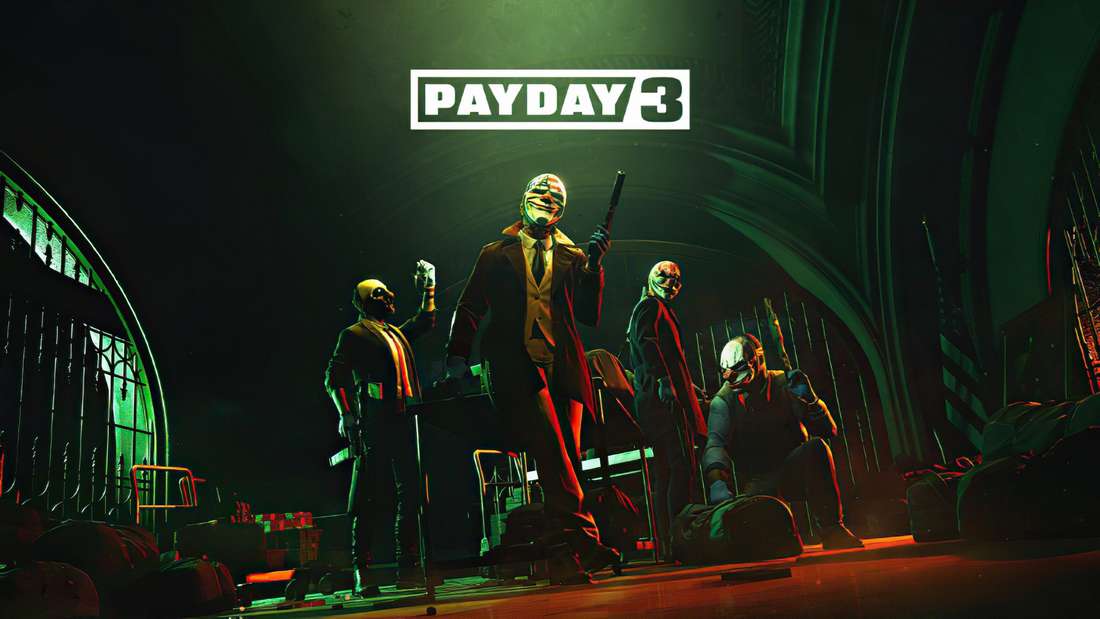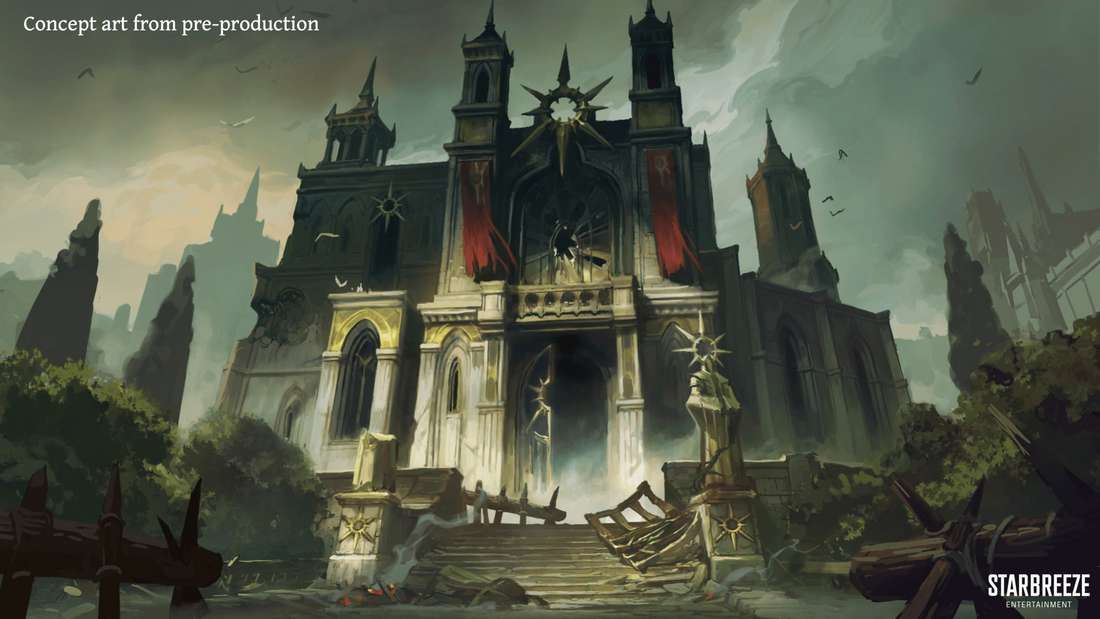Gaming News Flash: PAYDAY Developer Cancels Dungeons & Dragons Title, ‘Project Baxter,’ Affecting 44 Employees in Strategic Pivot
Popular Now
 Free Fire Max
Free Fire Max
 Counter-Strike 2
Counter-Strike 2
 Minecraft
Minecraft
 Gacha Club
Gacha Club
 Stumble Guys
Stumble Guys
 Valorant
Valorant
 EA SPORT FC 25
EA SPORT FC 25
 Garena Free Fire: Kalahari
Garena Free Fire: Kalahari
 NBA 2K24
NBA 2K24
 Among Us
Among Us
 The global video game industry continues to witness significant upheaval, with the latest news confirming a major strategic pivot from Starbreeze Studios, the developer behind the highly successful PAYDAY cooperative heisting franchise. In a move that underscores the intense market pressures and the ongoing reevaluation of AAA live-service projects, Starbreeze has announced the immediate cancellation of its long-awaited Dungeons & Dragons co-op title, codenamed ‘Project Baxter.’
The global video game industry continues to witness significant upheaval, with the latest news confirming a major strategic pivot from Starbreeze Studios, the developer behind the highly successful PAYDAY cooperative heisting franchise. In a move that underscores the intense market pressures and the ongoing reevaluation of AAA live-service projects, Starbreeze has announced the immediate cancellation of its long-awaited Dungeons & Dragons co-op title, codenamed ‘Project Baxter.’
This development, which follows a comprehensive strategic review by the company’s management and board of directors, signals a clear decision to consolidate resources. The central aim is to accelerate the growth and long-term viability of their flagship IP. However, the cancellation of this high-profile fantasy project comes with a heavy cost, as it is expected to result in the layoff of approximately 44 full-time employees and contractors, a sobering reminder of the volatility in the current gaming market.
 Strategic Rationale: Doubling Down on the Heisting Genre for Financial Stability
Strategic Rationale: Doubling Down on the Heisting Genre for Financial Stability
Starbreeze CEO, Adolf Kristjansson, articulated the difficult, yet ‘necessary,’ nature of the decision. The core of the new strategy is to ‘double down’ on the heisting genre, a niche where the studio has established itself as a clear leader with the enduring popularity of PAYDAY. This sharpened focus is seen as the most direct route to achieving financial stabilization, with the company aiming to become cash-flow positive in 2026. This aggressive financial goal reflects the high cost-per-acquisition (CPA) and substantial development overhead associated with competing in the congested games-as-a-service (GaaS) space.
Kristjansson stated that concentrating investment and talent on the PAYDAY franchise will allow the company to:
- Accelerate Content Delivery: Provide more frequent and higher-quality content updates for the existing player base.
- Engage Players: Reinforce community loyalty and expand the franchise’s reach.
- Reinforce Market Position: Solidify Starbreeze’s standing as the definitive studio in cooperative heisting.
This business decision prioritizes a known, high-potential asset—the PAYDAY IP—over the considerable risk associated with launching a new, unproven multiplayer IP, even one backed by the universally recognized brand of Wizards of the Coast’s Dungeons & Dragons.
 The Financial and Human Impact of the Project Cancellation
The Financial and Human Impact of the Project Cancellation
The discontinuation of ‘Project Baxter’ will have an immediate and measurable financial impact on the company’s balance sheet. Starbreeze has announced a non-cash impairment charge of approximately SEK 255 million (roughly $27.2 million USD) in the third quarter of 2025. This figure represents the previously capitalized development costs invested into the Unreal Engine 5-based project since its announcement in late 2023.
The human element, however, remains the most concerning aspect of the news. The layoffs, affecting dozens of dedicated developers and contractors, are a stark illustration of the industry’s recent trend of downsizing. Starbreeze confirmed that a ‘part’ of the ‘Project Baxter’ team would be redeployed internally to other projects, most prominently within the PAYDAY development unit. For those affected by the job cuts, the company has pledged to provide ‘active support’ to assist them in finding new roles within the broader game development community.
CEO Kristjansson extended his gratitude to the development team, acknowledging the passion and creativity poured into the project, and noting that the work achieved on ‘Baxter’ will carry forward, potentially influencing future innovations within the PAYDAY IP and Starbreeze’s future ventures.
Reviewing the Live-Service Landscape: Why Even D&D Could Not Guarantee Success
The cancellation of a Dungeons & Dragons live-service game is particularly noteworthy, especially in the wake of the colossal success of Larian Studios’ Baldur’s Gate 3. While BG3 proved the immense market hunger for high-quality D&D experiences, the context for ‘Project Baxter’—a cooperative, service-oriented title aiming for a 2026 release—was significantly different.
The marketplace for GaaS has become highly competitive and saturated, with only a few titles managing to capture the sustained engagement required to justify their high development cost and operational expenditure (OpEx). Many developers are finding that the initial investment required to launch a viable competitor is simply too great, or the risk of insufficient player retention is too high. Starbreeze’s decision suggests a pragmatic view: that investing those millions into their proven, established PAYDAY community offers a much higher, more certain return on investment (ROI) than gambling on a new IP in a volatile segment.
Key Takeaways from the Cancellation:
- Risk Management: Starbreeze is prioritizing financial stability by de-risking its portfolio.
- Focus on Core Competency: The studio is committing its best talent to the genre it knows and owns: co-op heisting.
- Industry Trend: This event aligns with a broader industry trend of major studios cancelling ambitious but resource-intensive projects to focus on core, profitable franchises.
The Future of Starbreeze and the PAYDAY Franchise
Moving forward, all signs point to an aggressive reinforcement of the PAYDAY IP. The studio is expected to significantly ramp up development efforts for PAYDAY 3, and potentially explore “the future expansion of the genre” with entirely new, innovative heisting titles. This renewed focus will encompass faster content rollouts, improved community features, and a greater commitment to making PAYDAY 3 the ‘modern live-engagement game’ it was intended to be, addressing some of the post-launch challenges the title has faced.
The cancellation of ‘Project Baxter’ is a clear message to the market and Starbreeze’s shareholders: the company is making tough choices to secure a profitable and sustainable future. This strategic shift is a textbook example of a public gaming company consolidating its most valuable intellectual property to maximize shareholder value and navigate an increasingly difficult global economy.
In a volatile sector where high production value and sustained engagement are mandatory, Starbreeze’s pivot from the fantastical realms of Dungeons & Dragons back to the proven, high-stakes world of heists demonstrates a strong, if painful, commitment to their core business model and the promise of long-term financial success.








